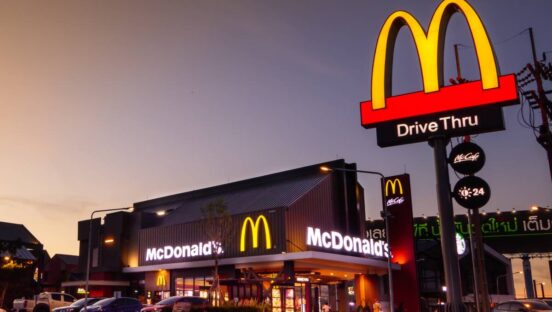In an effort to fast track its digital transformation, McDonald’s will acquire personalization- and decision-logic leader Dynamic Yield Ltd., the company announced March 25. As part of the deal, McDonald’s will pay more than $300 million, according to The Wall Street Journal.
The move enables the fast-food chain to provide a more personalized customer experience by varying outdoor digital thrive-thru menu displays to show food based on time of day, weather, current restaurant traffic, and trending menu items. The technology can also instantly suggest and display additional items to a customer’s order based on their current selections.
McDonald’s said the acquisition would allow it to become one of the first companies to integrate decision technology into the customer point-of-sale at a brick-and-mortar location. It tested the technology in several U.S. units last year.
Dynamic Yield helps companies provide personalized digital promotions to customers using streams of guest data. Its customers include IKEA and Fendi.
READ MORE: McDonald’s shifts value strategy for 2019.
Up first in the rollout: an area McDonald’s has circled as a growth target in 2019—the drive thru. The brand said the new tech would hit U.S. locations this year before expanding to other top international markets. McDonald’s plans to also integrate the technology into all of its digital customer experience touch points in time, including self-order kiosks and its global mobile app.
McDonald’s doesn’t make deals like this often. Its last sizable purchase was a $173.5 million deal for Boston Market in 1999, which it later sold to Sun Capital Partners Inc. The company also took a stake in Chipotle in 1998 and increased it before selling its position in 2006. The stake was, dollar wise, larger than the price of the Dynamic Yield purchase. But, as The Wall Street Journal points out, not a major blip for a company with a market value of $142 billion.
McDonald’s said following its fourth quarter review in January that speeding up the drive thru was a key initiative in 2019 and beyond. Drive-thru service times have increased, year-on-year, for the last five at McDonald’s. At 273.29 seconds, on average, McDonald’s was actually the slowest brand featured in QSR’s 2018 Drive-Thru Study.
But beyond just taking down operational complexity and improving staffing levels, Kevin Ozan, McDonald’s CFO, said McDonald’s would focus on “what we call just running better restaurants” this year.
McDonald’s CEO Steve Easterbrook noted earlier that the chain was installing “zoom boards,” or little digital screens at the drive-thru that provide real-time service times within the restaurant. It identifies where the bottlenecks are. From cash-handling, payment, and perhaps if guests are being asked to park and wait because the food isn’t ready.
The chain said Dynamic Yield’s ability to meet McDonald’s customer needs, coupled with the company’s commitment to growth capabilities around “ever-changing trends and evolving marketing technologies,” allows for “the continued advancement and elevation of the McDonald’s customer experience with technology and innovation.”
“Technology is a critical element of our Velocity Growth Plan, enhancing the experience for our customers by providing greater convenience on their terms,” Easterbrook said in a statement Monday. “With this acquisition, we’re expanding both our ability to increase the role technology and data will play in our future and the speed with which we’ll be able to implement our vision of creating more personalized experiences for our customers.”
McDonald’s has made a series of tech-forward changes in its Velocity Growth Plan. Some include the development of its mobile app, mobile order and pay, delivery via UberEATs, indoor and outdoor digital menu boards, and the self-order kiosks that define the Experience of the Future design.
The brand rolled the Experience of the Future design to about 4,500 locations at a cost of nearly $1.5 billion in 2018, or more than 10 new restaurants each day throughout the year. It plans to invest close to $1 billion of capital to complete another 2,000 projects.
In March, McDonald’s revealed a partnership with Textio, an augmented writing platform, to help with the recruitment and hiring process. The software can craft gender-neutral job posts using McDonald’s brand language and even write recruitment emails. This will allow McDonald’s to “not only recruit and hire faster, but also to ensure they reach top-quality applicants in an inclusive manner,” the company said.
With the Dynamic Yield deal, McDonald’s will become the sole owner and will continue to invest in Dynamic Yield’s core personalization product. The Tel Aviv, Israel, and New York-based company will remain a stand-alone organization.
U.S. same-store sales in Q4 rose 2.3 percent for McDonald’s. Global comps rose 4 percent, marking 14 consecutive quarters of positive global gains. McDonald’s revenue fell 3 percent, year-over-year, to $5.16 billion. It reported a profit of $1.42 billion, or $1.82 a share, compared with $699 million, or 87 cents a share, a year earlier. After accounting for a tax benefit and an adjustment related to the federal tax overhaul, McDonald’s earned $1.97 a share.







